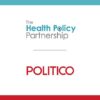The Health Policy Partnership (HPP), working with an expert steering committee, has produced new resources to help policy- and decision-makers implement innovative prevention strategies to tackle respiratory syncytial virus (RSV) infections in infants.
The resources – an implementation framework, an infographic and video testimonies from France, Spain and the United States – highlight tangible examples of best practice and the key factors that countries must consider in planning and implementing their own RSV prevention strategies. The implementation framework is specifically designed to help policymakers assess the readiness of their health system and identify any gaps that must be addressed.
In temperate climates (which includes most of Europe, North America and parts of Asia), RSV cases increase during winter months at a similar time to other respiratory infections, such as influenza and COVID-19. This places a substantial burden on already stretched healthcare services each year.
RSV is a common virus that infects most children by their second birthday. The leading cause of hospitalisations for children in their first year of life, RSV can cause difficulty breathing and is the most common cause of bronchiolitis and pneumonia in children.
As there is no specific treatment for RSV, preventive strategies are the best method to protect infants from severe illness. Innovative technologies, such as monoclonal antibody (mAb) immunisations, can protect infants from severe RSV symptoms and have been shown to significantly reduce hospitalisations in countries where they have been implemented.
We hope these resources will be widely used, and we look forward to working further with our expert Steering Committee on developing a policy report to further support the implementation of RSV prevention strategies around the world.
Access the resources


